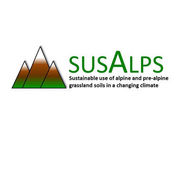Climate Change Can Accelerate Depletion of Montane Grassland C Stocks (2021.0)
Wang N., Xia L., Goodale C., Butterbach‐Bahl K., Kiese R.
Global Biogeochemical Cycles, 35 (10),
Abstract
Climate warming and management will likely affect carbon (C) fluxes of montane grassland ecosystems. In this study, we assessed the effect of simultaneous warming (+2°C) and decreased precipitation (−25%) on carbon exchange of montane grasslands in S-Germany by translocating large intact plant-soil cores from a high altitude to a low altitude site. Cores received two common grassland management regimes: intensive (4–5 cuts and slurry application) and extensive (1–2 cuts and slurry application). Diurnal patterns of net ecosystem exchange (NEE) and total ecosystem respiration (Reco) were measured over 1.5 years in 2–3 weeks intervals during the snow free period. Additional data on environmental controls, that is, photosynthetic active radiation, grass height and soil moisture and temperature, were used to develop empirical models to estimate daily and annual fluxes of gross primary production (GPP) and Reco. Considering the 2 years period (2014 and 2015), we found that, under warmer and slightly drier conditions, both GPP and Reco significantly (p < 0.01) increased (up to 20%) but with a higher temperature sensitivity of Reco, particularly in intensive managed grassland. The higher temperature sensitivity of Reco reduced the NEE by 0.7 t C ha−1 yr−1 for both extensive and intensive management, respectively. Considering additional carbon inputs via slurry and exports via harvest (i.e., annual net ecosystem carbon budget), our results showed that managed grasslands are already a source of C under current climate conditions (1.7–1.8 t ha−1 yr−1) which significantly (p < 0.05) increased under climate warming (2.3–2.9 t ha−1 yr−1).
